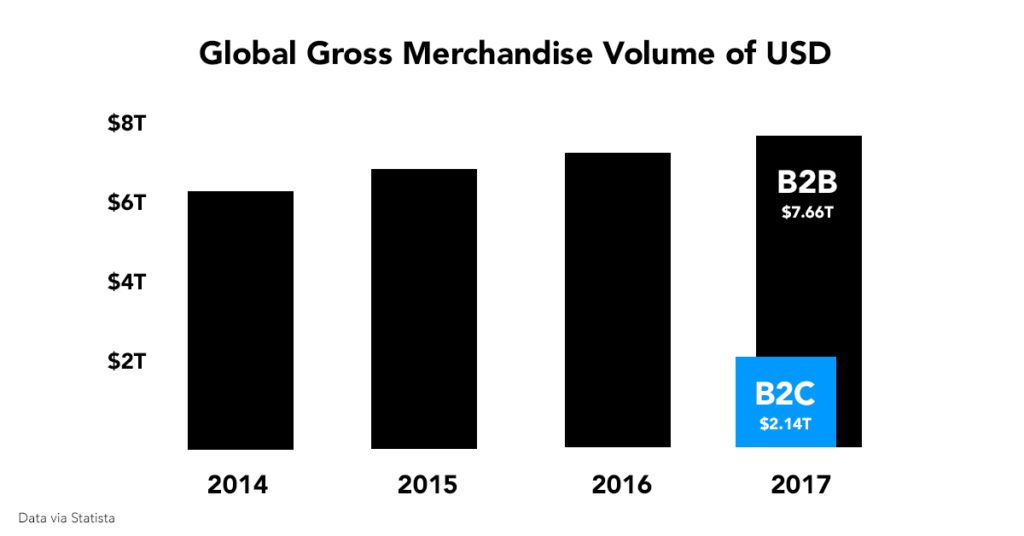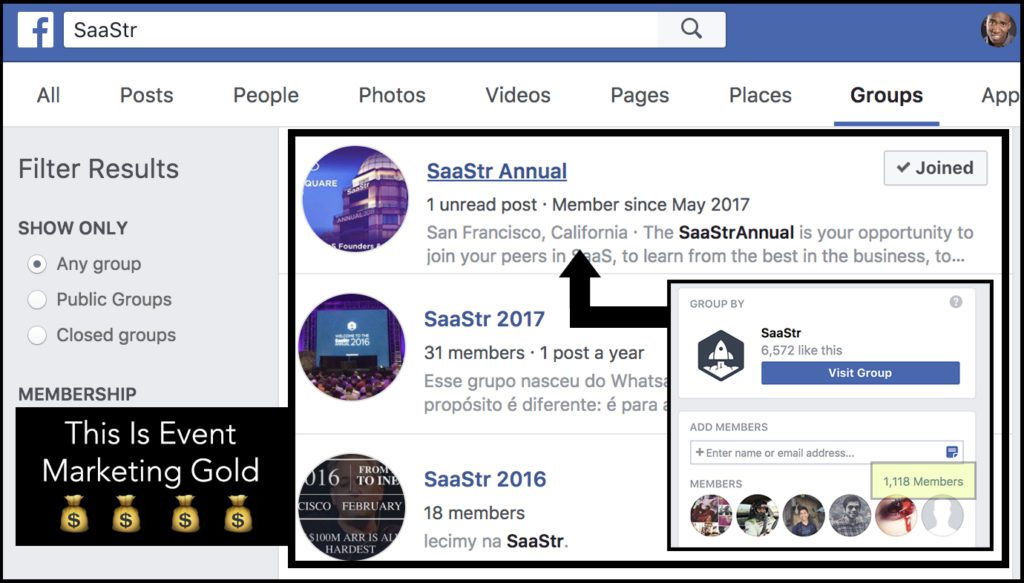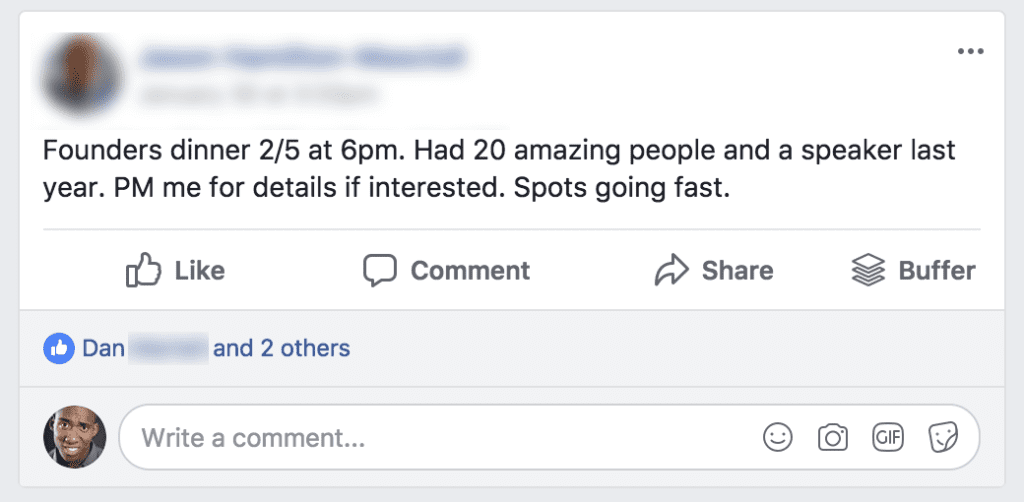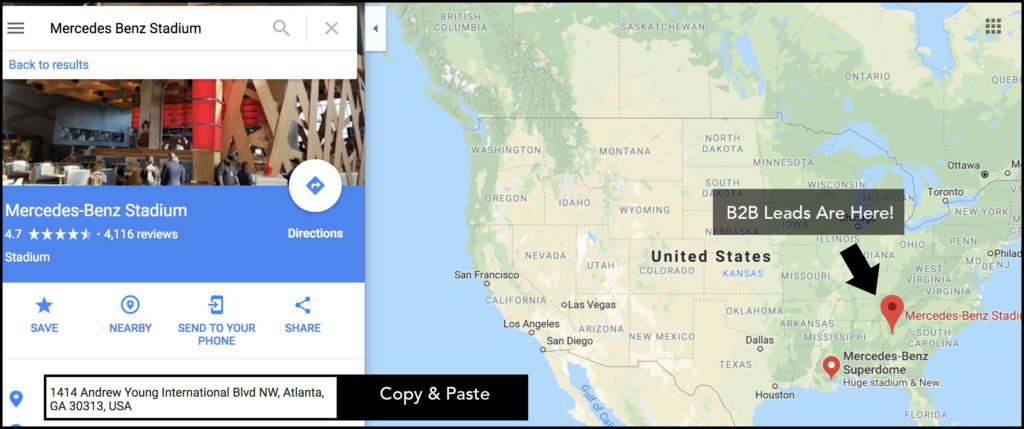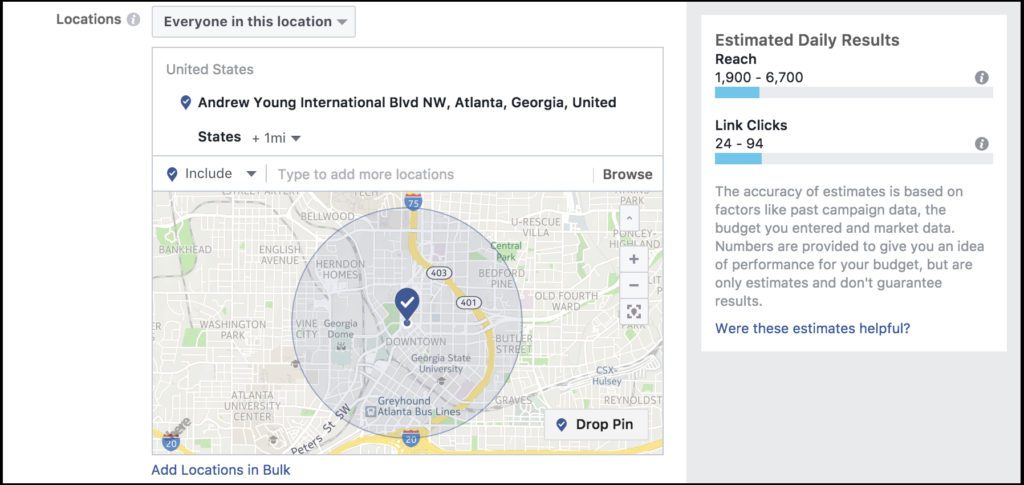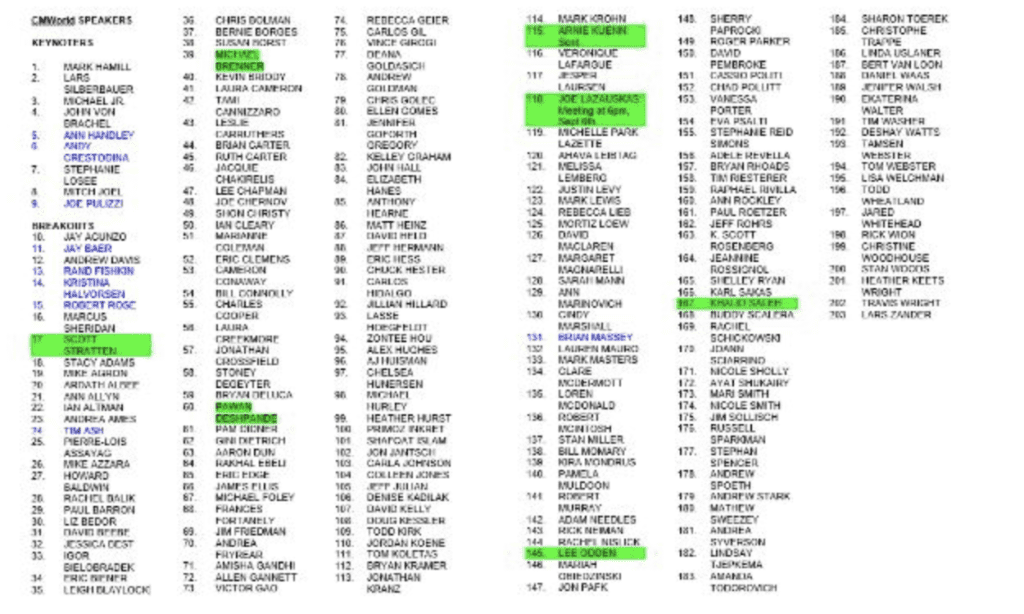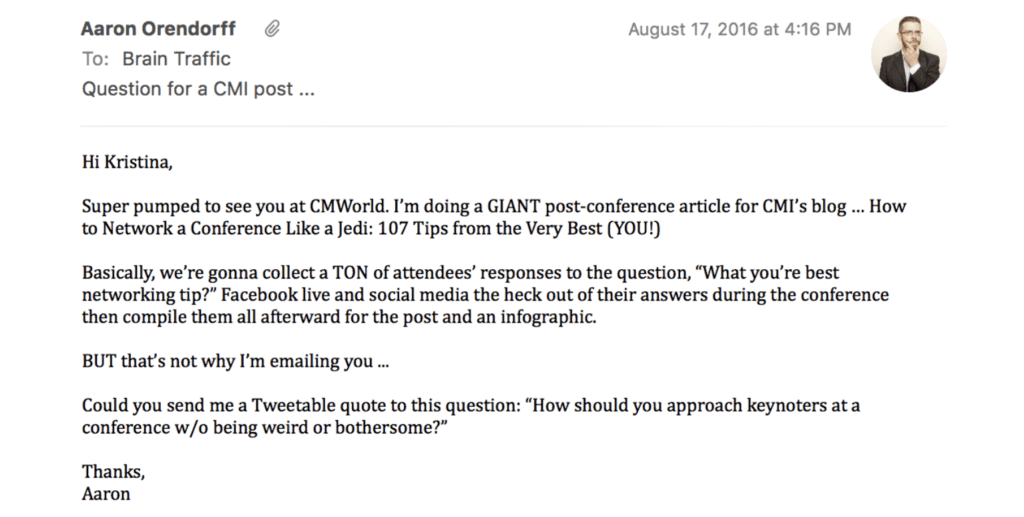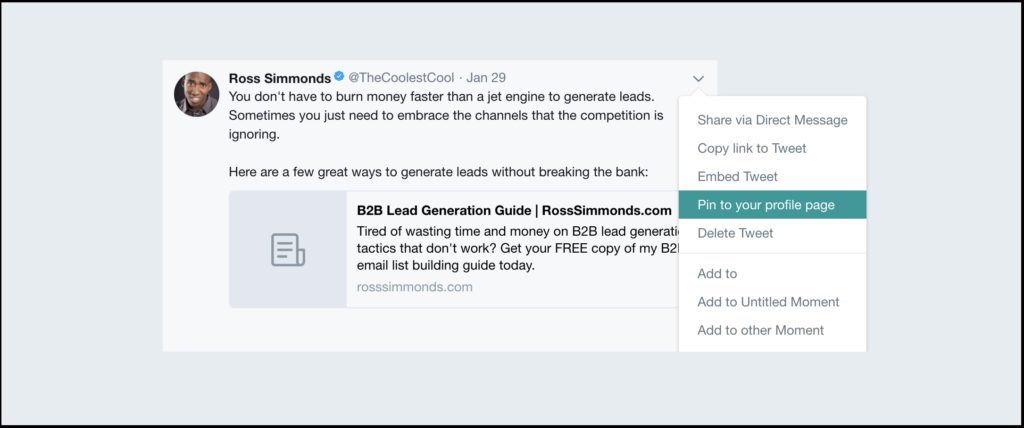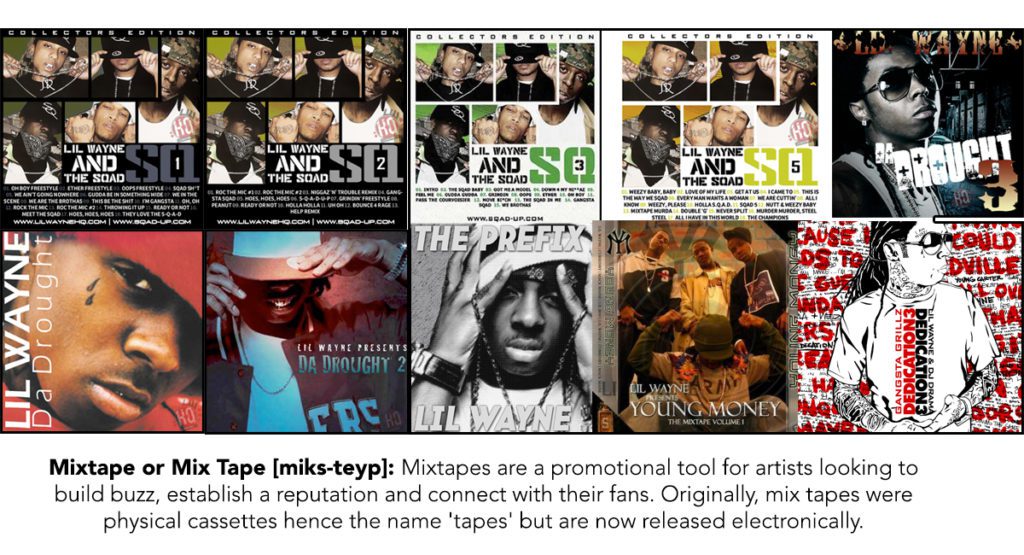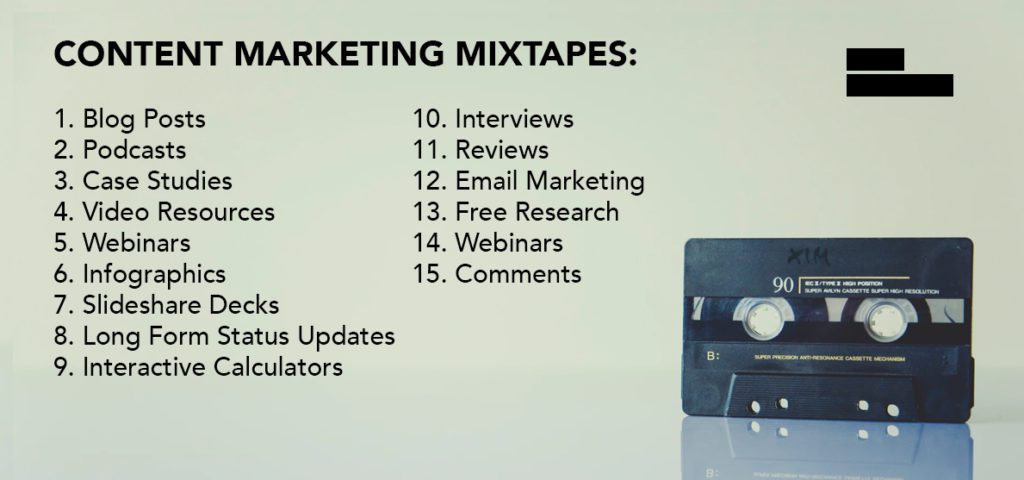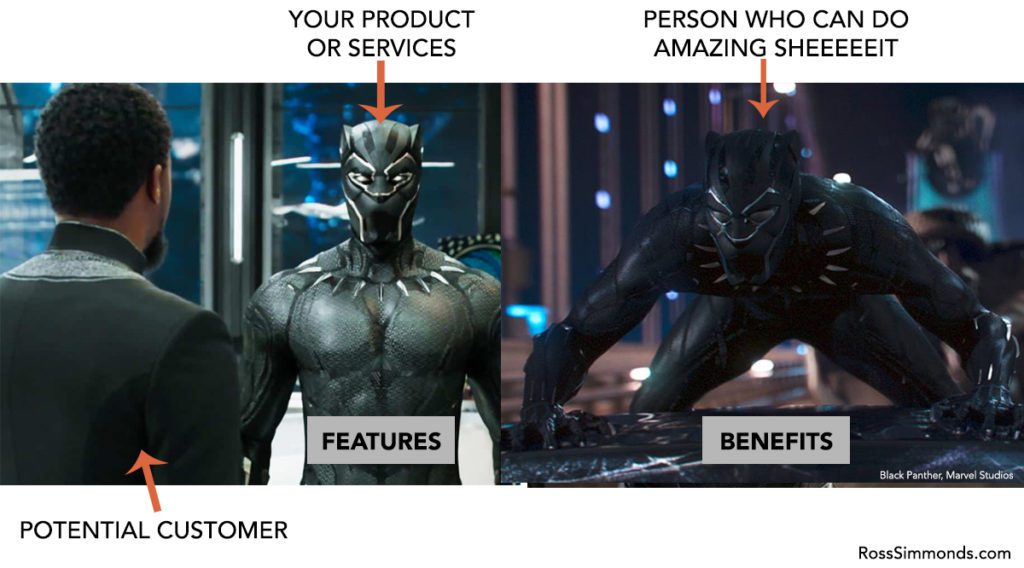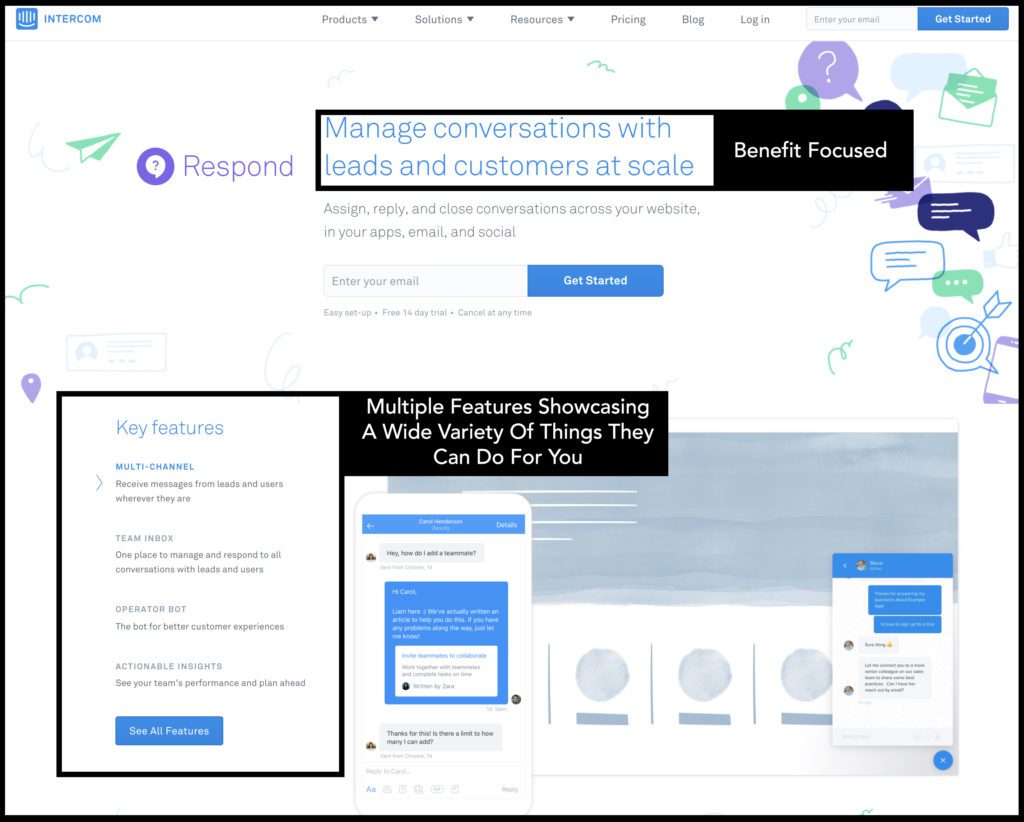As we go into a new year it’s important that we think about lead generation.
Quarter after quarter sales teams think about how good, bad or ugly their inbound leads have been. We all know the importance of B2B lead generation when it comes to helping a sales team reach their sales quota. It’s a simple scenario that many B2B marketers and sales professionals have had heated discussions over:
No leads. No sales.
And if the leads aren’t great… The close rate will suffer.
But there’s good news:
It doesn’t have to be this way!
B2B marketers can start making moves that increase the quality of their leads and the volume of these leads. And in this post I’m going to show you how to attract quality leads, build trust with them online, and ensure that your B2B brand (whether service or product) can have a solid pipeline that you’ll never lose sleep over because you’re wondering if sales is going to try and fight you during the next company meeting.
These are some of the best ways B2B brands can generate leads and a sure-fire way to ensure that at the end of the quarter both marketing and sales teams are poppin’ a bottle of Dom Perignon together.
Let’s get to it…
How To Find Your Target Audience In B2B
One of the first things any great B2B marketer does before launching their campaign is identify their target audience and learn everything they can about this group. Identifying a B2B target audience is a bit more difficult than it is in B2C situations.
You see, when it comes to B2C, the purchase decision-making process is typically much faster and comes down to one person making the call. Because of this, you can understand the individual pain points that this person has and focus solely on those.
Unfortunately, it’s not that simple when we start thinking about B2B.
For most B2B purchases, we’re not talking about a $20 t-shirt or $6 phone case (unless it’s in bulk). Most of the transactions that happen in B2B have a bigger average cart size and could be considered major purchases. Here’s a look at the difference between the number of dollars that flowed through B2B e-commerce in comparison to B2C e-commerce in 2017:
Here’s the thing about B2B:
In many cases, these purchases require buy-in from multiple levels within an organization. It’s not just the senior marketer that approves your project, it’s procurement, the VP of digital, and the CTO who all have an influence on that transaction.
So figuring out EXACTLY who your audience is can be a bit challenging!
And for that reason, Account-Based Selling has become quite popular amongst B2B brands, marketers, and sales professionals alike. Account-Based Selling (ABS) is when rather than trying to sell to one individual at an organization, you implement sales and marketing efforts that lead to multiple touchpoints, across multiple channels and are coordinated across your entire company through technology and data.
You see, instead of just targeting Aaliyah, the CEO of that Fintech company you’d love to work with, you’re also going to be targeting the CMO Erin, CFO James, CTO Alicia, and the Sr. Marketer Josh that you used to work with at your old company. And the way you reach James might be different from the way you reach Erin or Josh. If you have their email, use that channel. If you don’t, you can use an email address finder or you might find them on LinkedIn and use a LinkedIn automation tool to find their contact info.
That’s why it’s so important to keep track of the various touchpoints, how they’re happening, and use that data to better understand what type of content they want, how they want to receive it, and whether or not they’re warmed up enough to go in for your pitch.
That’s the role of internal data.
And it’s internal data that will help you better understand exactly who you should be talking to in the first place. As a starting point, you should look at who your best customers are:
- Which customers see the most value in your product or service?
- Which customers have you given the most value to?
- Which customers does your team love serving?
- Which customers give you the most love?
Create a list.
And then take this list and start finding companies that are in similar industries, with a similar size, and have similar problems. It’s through this data that you’ll find your target audience and once you do that, it’s time to start turning your audience into customers.
I’m a firm believer that:
Content Intelligence + Content Craftsmanship = Content Excellence.
Not enough people spend time researching their audience to understand the content they want. Not enough people spend enough time talking to their customers to understand their pains. But it’s in this extraction of intelligence that brands and marketers are able to unlock valuable insights.
How To Make B2B Events Count With Content Marketing
Most industries have a handful of business conferences that are filled with their target audience all under the same roof. The common belief by many is that promoting your brand at an event is only possible in four different ways:
- Speaking At The Conference
- Sponsoring Events At A Conference
- Setting Up A Booth At The Conference
- Shaking Hands At The Conference
Don’t get me wrong:
All of these ideas can work.
In fact, I’ve gone on record stating that I believe public speaking is one of the best underrated ways for B2B brands to generate leads.
But I’m here to tell you that they’re not the only way. The best marketers understand that generating leads at a conference can be done creatively and strategically. Here are a few simple ideas that can help you make your next event a hit without doing any of the items described above…
How Facebook Groups Can Help B2B Marketers Generate Leads
If you’re going to an event with 1000+ people and are looking to generate leads, setting up a Facebook Group or joining an existing one can be a great way to connect with the right people.
You can use the Facebook group to answer questions, share content, build relationships and even schedule something unique like a Sunday Morning Jog or Meet Up For Soccer Fans in town that want to watch the big match.
When you’re looking for a Facebook Group, simply type in the name of the conference in the search bar and you’ll be met with results:
In the search above, I’m looking for Facebook Groups related to the popular Software as a service conference, SaaStr. A quick search shows me that there’s an official “SaaStr” group along with a few groups from 2016 and 2017.
Upon joining the SaaStr Annual Group, I find out that it’s owned by the SaaStr team and has more than 1700 members. It’s inside of this group where you have an opportunity to create opportunities or capitalize on opportunities that exist. Here’s an example of an opportunity:
You can reach out and attend this event or take the initiative and create your own!
How To Use Location Based Advertising For Generating Leads At Events
You know that the people you’re trying to connect with are going to be at this event so why not leverage their location? Let’s say there’s a bunch of potential B2B leads attending an SEO conference in Atlanta that is hosted at the Mercedes Benz stadium.
You start by Googling the exact address of the conference:
From there, you’re going to copy and paste that address into the ‘location’ section found in Facebook Ads manager when creating your audience:
Now that you’ve added your address and found a pin on the map, you’re all set! Make sure you keep the distance around the pin within a mile or two rather than ten or more so you know you’re reaching your audience.
How To Make Your Geolocation Ad Great
No one likes to spend money for the sake of spending money!
Thus, it’s recommended that you try and ensure that your ad is as relevant as possible. You know that your audience is attending an event so rather than having a vague ad promoting your content – be specific. In doing so, it increases the likelihood that your ads are only going to be clicked by the people who are attending the event, one way to do that is by referencing the conference in the copy. Use a template like this:
Are you attending [Name Of Conference]?
Our team is here too! And we’re giving all attendees a FREE report on [SUBJECT].
This approach allows people who aren’t at the conference but happen to see your ad to self identify and not click because of it.
How To Create Event Focused Content And Generate Leads
If there are THOUSANDS of people coming into a new city for a conference, one of the easiest ways to build awareness is to create amazing content about the event. One of the best examples I’ve seen of this came from Aaron Orendorff and Nadya Khoja’s when they took over a conference with great content. From a massive round-up post and infographics to personalized videos and one-on-one interviews – they nailed it.
One of my favorite tactics that Nadya and Aaron took was the creation of a massive round-up post that included the speakers at the event. The post was turned into an infographic and titled: 26 Headliners on How to Connect with Influencers at a Conference [Infographic]. To bring this massive piece to life they started with a spreadsheet and compiled a list of both breakout and headline speakers:
Once the list was developed, they began reaching out to the folks on the list that they already knew and reaching out to mutual connections for introductions.
Here’s the exact email Aaron used when conducting outreach to the speakers:
From here, he compiled the answers and worked with Nadya to create a piece of content that would catch the attention of both the speakers and attendees of the event.
How To Use Social Media During Events To Generate Leads
Most conferences today have a hashtag associated with them that the attendees use to engage with one another. If you’re looking for ways to generate leads through events, take the time to interact with folks using the hashtag.
As you engage through social media, more people are going to visit your profile to learn about you and your business. As a way to capitalize on this, you can use the “pin” functionality on Twitter to pin a downloadable resource to your Twitter account. To do this, you’re going to publish a tweet, click the arrow and then press ‘pin to profile’:
When people start to notice you and visit your account, they’ll see this tweet at the top.
One of the easiest ways to automate engagement at an event is using a tool like Narrow.io. You can upload the conference hashtag directly to Narrow and it will automatically ‘like’ the tweets being shared that include the conference hashtag.
Why You Should Create A Post-Event Content Resource
Once the event is all wrapped up, create a MASSIVE resource that breaks down your key takeaways and lessons from the various talks. Include links that the speakers referenced in their talks and any resources that speakers have created in the past that might be useful. Ask people for their email to get the resource but send the PDF to all the speakers and ask for them to share your page.
If you embrace any of these tactics at your next industry conference, I’m confident that you’ll be able to see results. There’s no question that each of these ideas will require a bit of time and effort but if you’re able to generate a consistent and quality flow of leads, it can certainly pay for itself within a few short weeks.
Create More B2B MixTapes And Release Fewer Albums
Mixtapes have had a massive influence on North American culture over the last thirty years. The rise of mixtapes began in the 80s and took off in the 90s and 2000s when artists began using mixtapes to establish their initial fan base and eventually use them to catapult their career with their first studio album and music tours.
The idea behind releasing a mixtape is quite simple:
Give value to your audience, experiment with different sounds, learn what they love and give them more of it. Most mixtapes were released for free and were given away or sold for cheap at parties, during concerts, on the street, or at schools. It was this raw form of distribution that gave many artists and DJs their chance to shine and eventually become household names.
When most marketers think about generating leads, it’s immediately thought that they need to set up a landing page with gated content and ask their visitors for their personal information in exchange for the content. These gated forms are like albums that artists release asking their fans to acquire in exchange for payment. But what’s the likelihood of you buying an album from artist you’ve never heard of?
It’s slim.
That’s why I believe more businesses need to invest in releasing mixtapes.
In other words, it’s important for businesses to give valuable content to their audience for free and gain trust so when they do ask for a fans email, there’s no hesitation. These are what I call the content marketing mixtapes:
All of these things can be given away for free to your audience and give them enough value to appreciate and establish a sense of trust with your business.
What Is The Difference Between Features And Benefits In B2B?
This might surprise you if you’re a marketer but…
Features do matter.
We’ve all heard the saying: Sell Benefits, Not Features!
And I get it.
Benefits are what catch our audience’s attention but that doesn’t mean you should erase every feature you offer from your pricing page. If you’re not 100% sure on the difference between benefits and features, this visual might help:
In the example above the features are things like the bullet-proof material that runs throughout the suit and the metal claws built into the gloves. For some companies, features are things like the size of their screen, the number of GBs on a drive, the type of material on a jacket, or the ability to integrate one service with the next.
While these features are exciting and might be worth investing in, it’s the results of those features that really catch a potential buyer’s attention. It’s the ability to survive bullets being shot at you, soar into the air and land on all fours, increase productivity, close more deals, attract more leads, listen to more music, get healthy, reduce back pain, save money, etc, etc, etc… Benefits answer the question:
Why should I care…?
The key is to recognize that it’s your audience who actually decides when a feature is important to them and when a benefit is important to them. In most cases, that’s determined based on their stage in the buying cycle or their familiarity with your product and your competitors. If someone is in the early research stage, the primary benefit might be the most important message but if someone has been researching your product and competitors for weeks, it’s the features that might close the deal.
In an industry where the benefits between most offerings are the same, the features can play a role in someone’s decision. If someone is very familiar with your competitors and knows what features they’re missing, the features can play a role in a move from them to you. A decision between two very similar products, the choice could come down to features.
The website for Intercom is an example of a website that highlights both an overarching benefit along with multiple features:
The benefit is placed at the beginning of the page to immediately communicate the value that this service offers. Similar to the Black Panther example, it clearly communicates how your life will be better by signing up for their service. If you’re still not sold and need more information, the key features are there to further showcase the value that this service can provide and be used when comparing to other products.
Many B2B brands make the mistake of being either too benefit-driven (which doesn’t paint a clear picture around what you actually do) or being too feature-driven (which doesn’t connect with the motivating factors that lead to a decision). So as you craft the content for your website, product pages, email pitches, and webinars – think about the role that both benefits and features play in crafting a great story.
Wrapping Things Up
So there you have it…
That’s how I like to think about B2B marketing (or at least that’s some of my thoughts on the topic). If you’re like me and could geek out for hours about the important role that marketing can play in the B2B cycle, I think you’ll dig some of my other posts.
For example, here’s a 5-step process for B2B brands looking to improve or create quality marketing strategies:
B2B Marketing Strategies: A 5-Step Process For B2B Brands (With Examples & Best Practices)
Let me know what you think and I’d love to hear your thoughts on this piece below! Have you tried any of the B2B event marketing ideas before?

